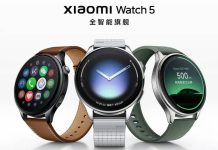Google’s recent #TheAndroidShow episode unveiled exciting details about upcoming advancements in the Android universe. Discussions about the Mobile World Congress (MWC), the anticipated Android 15 update, and the intriguing Gemini Nano AI model generated a buzz. However, a bombshell announcement left Pixel 8 users scratching their heads – the absence of Gemini Nano, Google’s most lightweight AI model, in the Pixel 8. This unexpected revelation sparked concerns about the future of on-device AI capabilities for Pixel 8 owners.
Hardware Hurdles Hinder Gemini Nano Integration
Terence Zhang, a Google developer relations engineer, shed light on the situation. He explained that “some hardware limitations” within the Pixel 8 prevent it from supporting Gemini Nano. This news may come as a disappointment to Pixel 8 enthusiasts eager to experience the potential benefits of on-device AI advancements. However, Zhang offered a ray of hope by hinting at the future integration of Gemini Nano into other high-end devices. This suggests Google’s unwavering commitment to expanding the reach of its mobile-friendly large language model (LLM), Gemini Nano, with a focus on premium smartphones.
A Tale of Two Pixels: The AI Divide
Interestingly, while the Pixel 8 faces limitations with Gemini Nano, its pricier sibling, the Pixel 8 Pro, is confirmed to have the AI model on board. This creates a disparity in on-device AI capabilities between Google’s latest flagship phones. Unfortunately, Google hasn’t yet provided a detailed explanation for the hardware limitations hindering Gemini Nano’s inclusion in the Pixel 8. The lack of transparency leaves Pixel 8 users with unanswered questions and a sense of potential missed opportunities.
Potential Implications of Missing Out on Gemini Nano
The absence of Gemini Nano in the Pixel 8 might have several implications:
Limited On-Device AI Features: Without Gemini Nano, the Pixel 8 might rely more heavily on cloud-based AI for functionalities like enhanced voice recognition, image processing, and smart assistant capabilities. This could potentially lead to slower response times or a requirement for an internet connection for some features that might otherwise operate seamlessly on-device.
Privacy Concerns: Increased reliance on cloud-based AI could raise privacy concerns for some users who might prefer on-device processing for more sensitive tasks.
Missed Performance Optimization: Gemini Nano is designed for efficient on-device processing that can potentially improve smartphone performance by offloading tasks from the main processor. Without it, the Pixel 8 might experience slightly less efficient resource allocation for certain AI-powered features.
However, it’s important to note that Google hasn’t yet revealed the specific functionalities Gemini Nano might have enabled on the Pixel 8. Therefore, the overall impact of its absence remains somewhat unclear.
Looking Ahead: What Does This Mean for Pixel 8 Users?
While the lack of Gemini Nano support in the Pixel 8 is a surprise, it doesn’t necessarily signify a significant loss in overall functionality. Here’s a breakdown to help Pixel 8 users navigate this situation:
Pixel 8 Still Boasts Powerful AI: The Pixel 8 likely utilizes other AI models for core functionalities. It’s important to wait for official information from Google regarding the on-device AI capabilities present in the Pixel 8.
Potential Software Updates: Google might introduce software updates in the future that improve or expand AI functionalities on the Pixel 8, even without Gemini Nano.
Focus on Other Strengths: The Pixel 8 likely boasts other strengths beyond AI, such as camera quality, display performance, or user interface design. Consider these aspects when evaluating the overall value proposition of the Pixel 8.
FAQs
Q: Why is the Pixel 8 not getting the Gemini Nano AI model?
A: Google cites “hardware limitations” as the reason for excluding Gemini Nano from the Pixel 8. Specific details haven’t been disclosed yet.
Q: What are the potential benefits of Gemini Nano?
A: Specific functionalities haven’t been officially revealed by Google. However, Gemini Nano, being a mobile-friendly LLM, is likely designed for efficient on-device processing of tasks like voice recognition, and image processing, and potentially enhancing smart assistant capabilities.
Q: Should I be worried about missing out on Gemini Nano with the Pixel 8?
A: It’s difficult to say definitively without knowing the specific features Gemini Nano would have enabled on the Pixel 8. Pixel 8 users will still have access to other AI models for core functionalities. It’s advisable to wait for official information from Google regarding the on-device AI capabilities of the Pixel 8.




